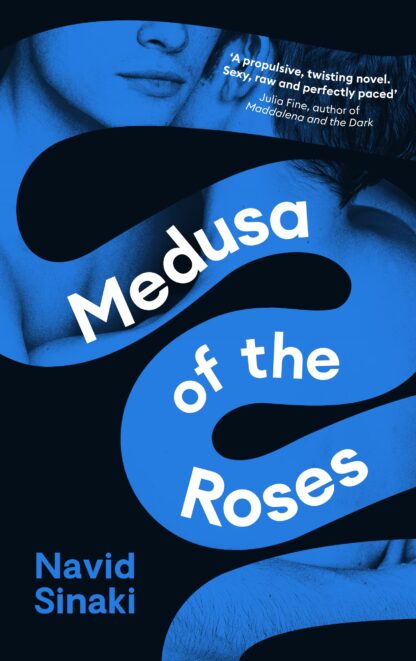06 August 2024
Anjir and Zal have been together ever since they first knew what love was. But living in Iran, the two men must keep their relationship hidden, potentially on pain of death.
Medusa of the Roses is Navid Sinaki’s transgressive, lyrical and deeply moving literary debut. Read an extract from the opening of this powerful novel below.
Available from: Waterstones | Bookshop.org | Amazon
Tiresias was mine. I always played the part of the man from Greek mythology who turned into a woman simply by striking two snakes.
It would have made the most sense if we pretended to be Zal and Rudabeh, even though we were two boys. Zal, who I always loved more than a friend, shared his name with a fabled Persian prince. And like Rudabeh, I was told my hair could pass for snakes. But I chose Tiresias when we played in a garden where gravity was especially cruel. Since our house was built on a slant, cherries from a neighbor’s tree rolled into our yard from one side and out the other before we could catch the fruit. Pomegranate trees kicked up rocks in search of water that was always out of reach. Nectarines didn’t just fall, they were impaled by stones. If ever one fell on my head, I’d pretend I deserved it in preparation for juices I’d eventually catch on my neck.
Sometimes I wore a veil for the role. A simple lace tablecloth completed my metamorphosis. In the myth, Tiresias eventually struck another two snakes and returned from being a woman to being a man, so we looked for the fruit vendor who hammered his cantaloupes at the end of the day. He would rather they rot than go for free. He also sold oranges I peeled to see what it felt like to walk around with foreskin, as I assumed they did in ancient Greece.
“It’s hard to love you,” Zal began to say when we were older. Not because I was a boy who wore veils and a fake foreskin. “Because you’re so infatuated with death.”
Perhaps he was right. I was the boy who gathered moths for spiders’ webs. I would polish the light bulbs when a memorial was strung for a kid who had drowned. I’d cry at spring because, with the dry leaves gone, for months nobody would talk about death.
Zal, let our words be a ribbon between the mouths of painted angels. If I start a conversation with you and keep it to myself, at least that won’t end.


